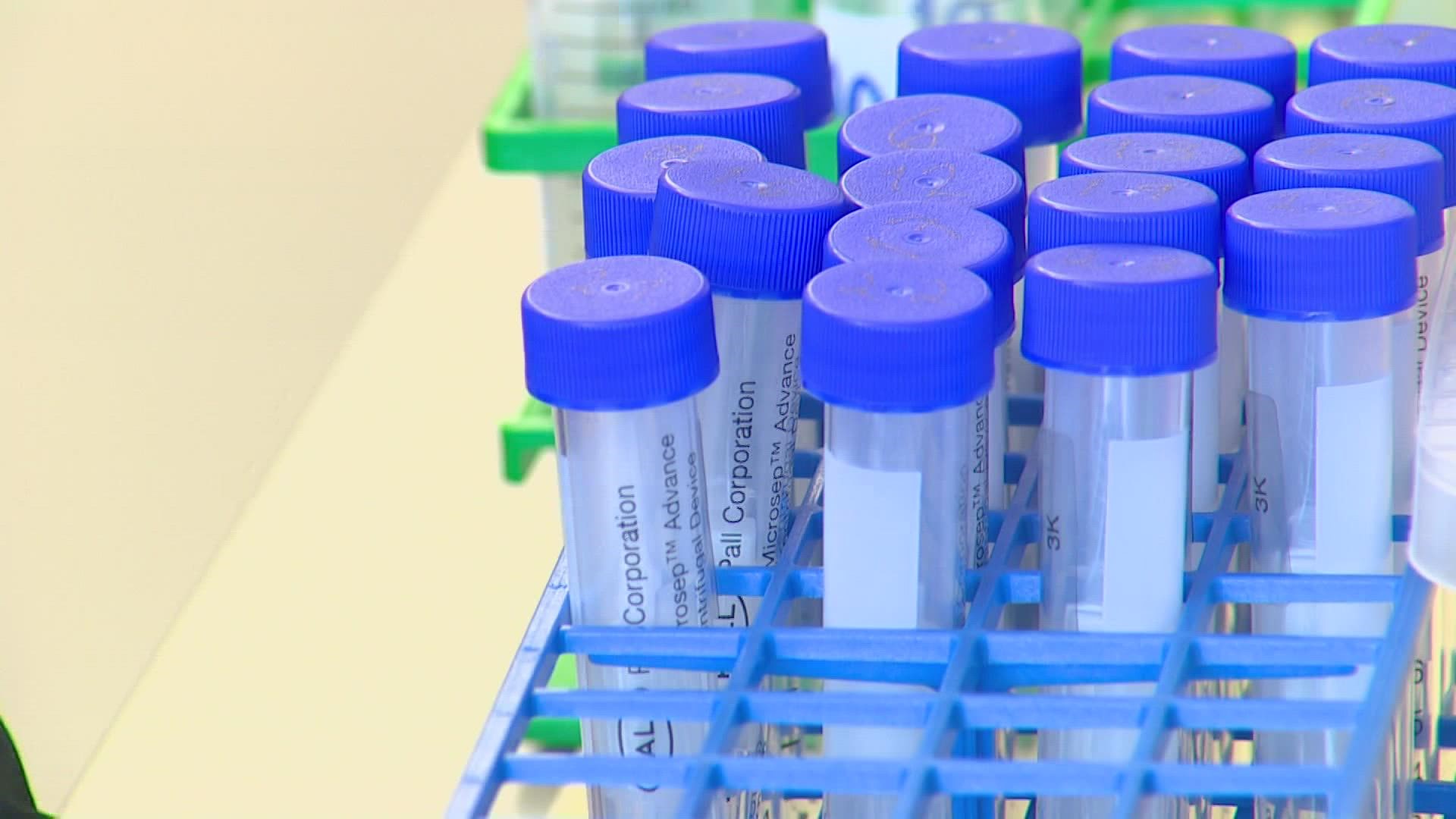SEATTLE — The Bio-Chemistry department of the University of Washington’s (UW) medical school is busy developing vaccines against the coronavirus that causes COVID-19.
But the school isn't stopping there. A team is also hard at work on a vaccine that could prevent disease from an entire category of coronaviruses, including those that haven’t even evolved yet.
“Don’t just focus on one thing, focus on the entire segment,” said UW scientist Lexi Walls, who is working with teams developing both.
That segment is a class of coronaviruses called “beta” not to be confused with the beta variant of SARS-CoV-2, the coronavirus that causes COVID.
The "beta" class of coronaviruses is responsible for SARS, known as Severe Acute Respiratory Syndrome, and MERS, the Middle East Respiratory Syndrome. Both caused sickness and panic starting in the early 2000s, but neither caused pandemic death and global mayhem on the scale of SARS-CoV-2.
Yet, they are all related.
Even within SARS-CoV-2, responsible for COVID-19, variants have researchers playing whack-a-mole — and with the emergence of Omicron, the question is how well will the current array of vaccines protect against it.
"The ultimate goal is to create a broadly proactive coronavirus vaccine,” said Marcos Miranda, a UW Research Scientist, as he showed KING 5 around a lab on the Institute for Protein Design at the University of Washington’s main campus.
At the lab, incredibly small proteins, known as Nano Proteins, are made to replicate the shape of a virus scientists want human cells to be able to recognize. Essentially, the proteins are impersonating a virus, but are actually not real viruses.
In the lab, scientists have been able to recreate that shape along with the spike proteins that attach the virus to cells allowing them to use human cells to replicate and spread.
The search is on a molecular level to determine the common elements between all beta coronaviruses, so if the body is trained to recognize those common elements, it can recognize all the viruses from that family.
“The goal is to get a vaccine that no matter what variant comes, you have the defenses and you’re ready,” said Walls.
It’s a different approach than other vaccines that either use another safe virus with the SARS-CoV-2 spike protein attached to teach the body, or mRNA, which instructs the body to manufacture spike proteins that it can then recognize a real invading virus and neutralize it.
Currently, the University has a vaccine in stage three human trials to fight SARS-CoV-2, calculating that it will protect against COVID-19 irrespective of which variant comes along. They do plan to test it against all variants to be sure.
That vaccine, if successful is a building block allowing the university to move onto the final step which is a “universal vaccine” that would work against present and future beta coronavirus viruses which originate in bats—even against viruses that haven’t even evolved yet.
“So we’re saying, ‘Hey immune system, respond to these common elements.’ So no matter what type of variant of SARS CoV-2 you see, you’re ready with a defense system,” said Walls.

